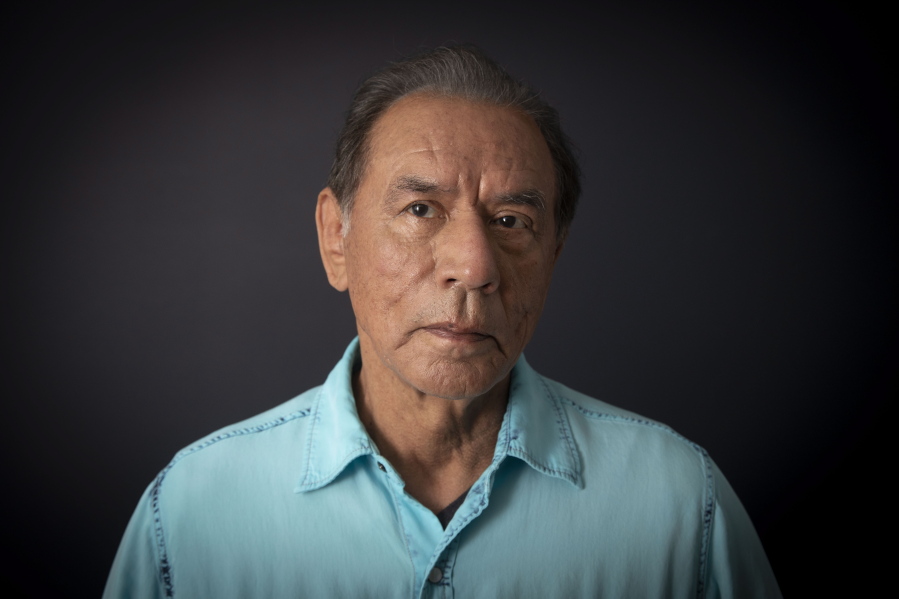In Wes Studi’s potent and pioneering acting career, he has played vengeful warriors, dying prisoners and impassioned resistance leaders. For three decades, he has arrestingly crafted wide-ranging portraits of the Native American experience. But one thing he had never done in a movie is give someone a kiss.
“I thought it was about time, yeah,” Studi, 74.
In “A Love Song,” a tender indie drama starring another long-pigeonholed character actor, Dale Dickey, Studi is for the first time cast as a romantic co-star. Dickey (“Winter’s Bone,” “Hell or High Water”) plays a woman camping by a mountain lake awaiting the visit of an old flame.
Studi, the Cherokee actor who masterfully played the defiant Huron warrior Magua in Michael Mann’s “The Last of the Mohicans” and who got his first big break playing the character credited only as “the toughest Pawnee” in “Dances With Wolves,” hasn’t been limited entirely to what he calls “leather and feathers” roles. But it’s sometimes taken some extra effort. When he heard Mann was making “Heat,” Studi called up the director and got himself a part as a police detective.
But recently, Studi is increasingly getting a chance to play a wider array of characters. Along with Max Walker-Silverman’s “A Love Song,” which opened in theaters Friday, he’s a recurring guest star on Sterlin Harjo’s “Reservation Dogs,” the second season of which debuts Aug. 3 on Hulu.
“Hopefully it has to do with creating a better understanding of Native people by the general public,” Studi said in an interview. “It does still exist, the misconception that we were all killed off and we don’t exist anymore as peoples. That’s essentially what I want to work on, and being a godfather to Native people in the industry.”
With that Studi, sitting outside the lobby of his hotel in New York, lets out such a howl of laughter that he nearly doubles over.
Why does that notion, one many would eagerly endorse, strike him as so hysterical? He entered Hollywood at a time when Indigenous people were regularly played by white actors. A 2019 honorary Oscar made Studi the first Native American actor ever given an Academy Award.
“I can’t take myself seriously when I say that, that’s why,” he answers. “I guess it could be.”
In person, Studi bears little resemblance to his fiercer screen roles. He’s more like his characters in “A Love Song” and “Reservation Dogs.” Amiable. A good storyteller. He exudes a bemused gratitude for the life he’s found as an actor despite spending half his life without Hollywood ambitions. Studi grew up outside of Tahlequah, Okla., and spoke only Cherokee until he was 5.
“I had never thought of acting, really, except once early in my life when I asked my dad when I saw Jay Silverheels on ‘The Lone Ranger’: ‘Do you think anybody else can do what he does?’” Studi recalls. “He said, ‘Probably not. Most of the actors you find are 6-foot tall, blond and blue-eyed.”



